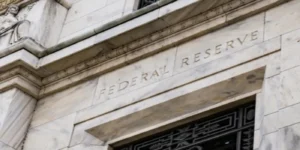[ad_1]
Coinbase, in an ongoing authorized tussle with the Securities and Exchange Commission (SEC), has expressed its opposition to the SEC’s attempt to make use of a default judgment from a separate insider buying and selling case to strengthen its lawsuit towards the change.
The SEC had indicated its need to tell the court docket of a default judgment that deemed the buying and selling of sure crypto property on secondary markets as securities transactions. This transfer by the SEC and Coinbase’s subsequent response underscores the escalating authorized scrutiny surrounding cryptocurrency regulation in the United States.
Legal Context and Coinbase’s Opposition
The controversy facilities on the latest court docket ruling of an insider buying and selling case in which Sameer Ramani, a pal of former Coinbase product supervisor Ishan Wahi, was concerned. The court docket’s ruling in the default judgment in the absence of Ramani declared some crypto property buying and selling as securities transactions. In this regard, the SEC aimed to make use of this ruling in its lawsuit with Coinbase for working as an unregistered change, dealer, and clearing company.
In its submitting, Coinbase argued the admissibility and the burden of the default judgment, stressing the truth that the judgment was gotten with none contest from the defendant, Ramani, who’s suspected to have left the nation. Coinbase’s authorized crew argued that the way in which the ruling was obtained ought to trigger it to undermine its relevance in the context of the SEC’s lawsuit towards Coinbase.
In addition, Coinbase emphasised the nonappearance of the Ripple matter and transactions on the secondary market evaluation in the SEC’s default judgment movement, exhibiting doable flaws in the regulator’s reasoning.
Implications for the Cryptocurrency Industry
This authorized battle between Coinbase and the SEC furthermore displays the widespread regulation issues to which the entire cryptocurrency business is uncovered. The SEC’s interpretation of crypto property as securities, primarily based on the Howey Test—a framework from a 1946 Supreme Court case—has been a degree of competition.
In addition, the Ripple case, talked about by Coinbase in its opposition, offered the crypto business with a nuanced perspective on how crypto gross sales to institutional versus retail buyers is perhaps handled beneath securities legislation, additional complicating the regulatory panorama.
The verdict of the lawsuit filed by Coinbase towards the SEC’s utilization of the default judgment in the court docket, consequently, will function the precedent for the classification and regulation of crypto property in the longer term. A ruling in favor of the SEC might bolster the company’s stance on the necessity for stricter regulatory oversight of crypto exchanges and property, probably resulting in important shifts in how crypto companies function throughout the U.S. Conversely, if Coinbase’s problem is profitable, it could embolden the crypto business to push again towards regulatory measures perceived as overreaching.
Read Also: Binance US Faces SEC Scrutiny Over Customer Assets
The introduced content material could embody the private opinion of the writer and is topic to market situation. Do your market analysis earlier than investing in cryptocurrencies. The writer or the publication doesn’t maintain any accountability in your private monetary loss.
[ad_2]
Source link




✓ Share: